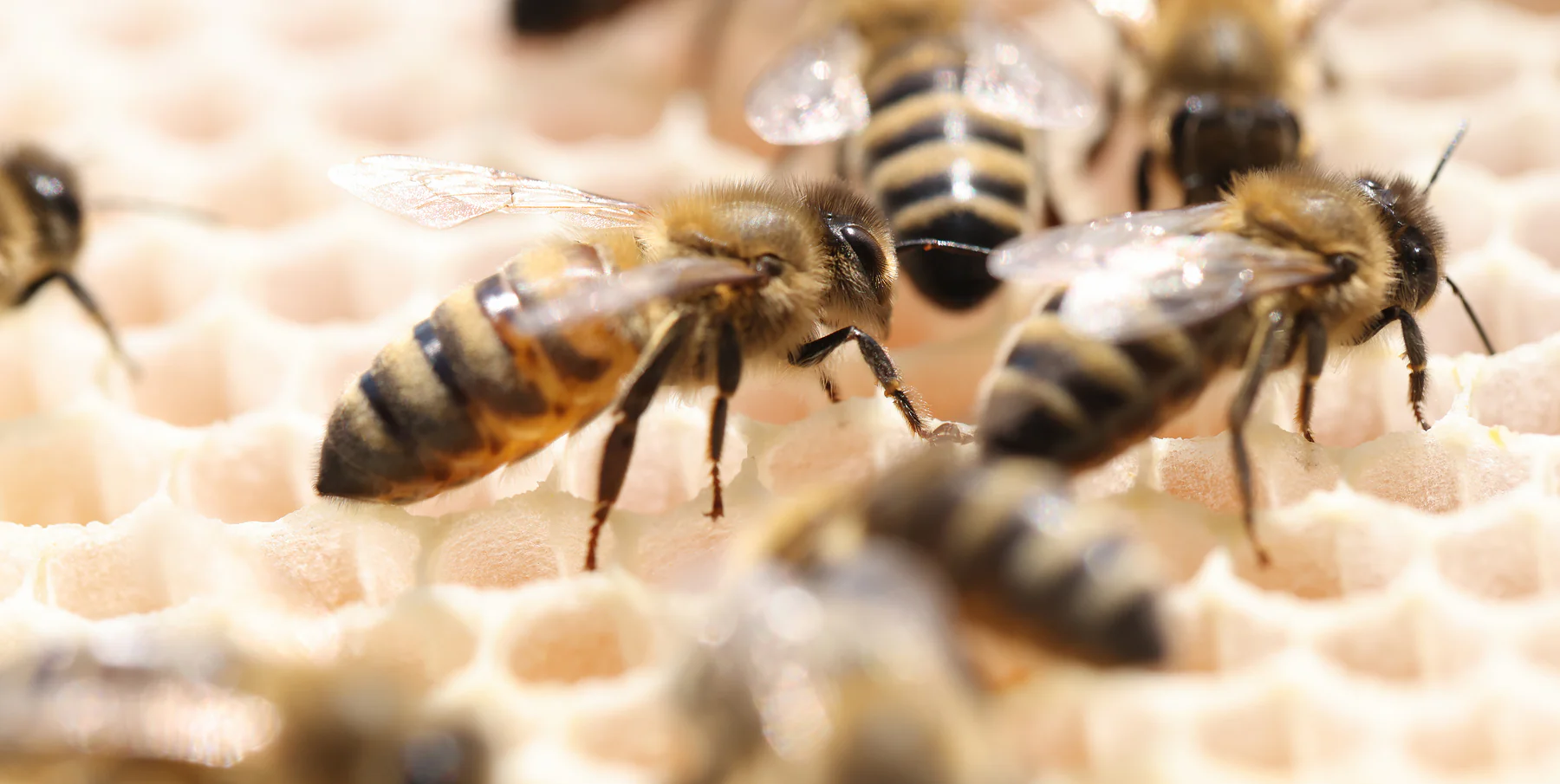
Bee Venom Therapy: How Does Apitherapy Work?
Bee venom therapy, also called apitherapy, dates back up to 5,000 years in ancient history. It was practiced in medical systems of ancient Greece, Egypt, China and more. In this post, you'll learn how apitherapy works and the benefits and risks you need to know about.
What is Bee Venom Therapy?
Bee venom therapy is the intentional exposure of bee venom just under the skin in a controlled dose repeatedly over time. In ancient times, live bee stings were applied to the skin directly. Studies suggest beekepers have more immunity to viruses because of the frequency they get bee stings. Today, a hypodermic needle is used to inject FDA-approved bee venom just below the surface of the skin.
What is Bee Venom?
Bee venom is the poison inside bees responsible for the pain of a bee sting. For most people, getting stung by a bee isn't deadly or even a cause for concern. For some, this odorless, acidic liquid bees excrete through their stingers is a deathly allergen. It's rich in enzymes, amino acids and other bioactive compounds that regulate the immune system in powerful ways.
Bee Venom Uses
Bee venom therapy is used to treat various ailments, including to reverse bee venom allergies. Modern medicine is still in the early phases of researching bee venom as medicine, and larger clinical trials are needed. Here are the benefits of bee venom supported by scientific evidence thus far:
Cures Bee Venom Allergies
For people allergic to bee venom, apitherapy can potentially desensitize the immune system to bee venom. Proven to work effectively and safely under medical supervision, purified bee venom for under-the-skin injection has been approved by the FDA. Repeated injection of bee venom under the skin helps the immune system become accustomed to bee venom. Over time, the treatment reduces the severity of bee venom allergies, which can be deadly.
Improves Automimmune Conditions
Bee venom modulates immune cells in the periphery nervous system in a way that could be game changing for people with autoimmune disease. Research shows the immune system reacts to bee venom in a way that stimulates cell immunity and lowers inflammation. Bee venom also has antioxidant enzymes that protect immune cells from damage.
A year-long clinical trial on patients with multiple sclerosis (MS) found that bee venom therapy lowered symptoms and improved functionality. Five clinical trials on humans have shown apitherapy to be effective in treating arthritis, according to a medical review published in Toxins.
Reduces Symptoms of Parkinson's Disease
Anti-inflammatory components inside bee venom have neuroprotective effects on glial cells and neurons — crucial nerve cells that secrete neurotransmitters for the central nervous system. Neurotransmitters allow the body to receive messages from the brain.
Parkinson's disease is a neurodegenerative disease with no cure that progressively debilitates nerve function. A controlled study found that bee venom improved symptoms in just 8 weeks as an adjunctive therapy for patients already taking antiparkinsonian medicine. Research is still in early phases, but bee venom's neuroprotective effects could be promising for other neurodegenerative diseases, such as Alzheimer's and amyotrophic lateral sclerosis (ALS).
Helps Treat Liver Fibrosis
In fibrosis of the liver, collagen buildup on the outside of the liver reduces the liver's ability to filter blood and produce enzymes. Animal research shows bee venom's antioxidant enzymes increases levels of hepaprotective enzymes like glutathione in the liver. While human trials are needed, these results suggest apitherapy could be an adjunctive therapy for liver fibrosis.
Reverses Atherosclerosis
Animal research on atherosclerosis found that bee venom possesses lipid-lowering and anti-inflammatory effects capable of shrinking atherosclerotic lesions. According to a study in the American Journal of Chinese Medicine, bee venom influences gene expression in a way that reduces inflammation and blood coagulation inside blood vessels. The result is less buildup of cholesterol and triglycerides inside blood vessels, according to the controlled animal study.
Treats Some Skin Diseases
Skin diseases typically treated by anti-inflammatory and antibiotic medicine may benefit from bee sting therapy. Bee venom is shown in studies to improve acne, psoriasis, dermatitis, and more when applied regularly in a diluted topical serum. By modulating immune cells and reducing inflammation, bee venom can improve skin conditions within weeks.
Bee Venom Therapy Risks and Side Effects
Bee venom therapy should be seen as a risk. Of course, for someone allergic to bees with no EpiPen on them, a bee sting can be fatal. For people allergic to bee venom, more minor side effects like skin rashes are common during apitherapy. However, there's a risk for anaphylaxis, including for people who don't know they have a bee venom allergy.
Redness and swelling at the injection site are common after bee venom therapy. Some other side effects can include heart palpitations, anxiety, chest tightness, low blood pressure and itching. Bee venom also may make immunosuppressant drugs less effective.
How is Bee Venom Therapy Done Safely?
Apitherapy requires qualified practitioners who are aware of the risks and how to be cautious of them. A small amount of bee venom can be applied to the outside of the skin to see if an allergic reaction occurs before injecting it under the skin. It's also important to have anti-allergy medicine on hand, and an epinephrine autoinjector.
Purified bee venom as an injectable treatment has only been FDA approved for treating bee allergies. If you don't have a bee allergy, you won't be able to get it from your doctor. However, acupuncturists and other practitioners who offer bee venom therapy can administer live bee stings for you.
Undergoing bee venom therapy typically means being administered injections or live bee stings multiple times a week for 2 or more months. The dosage will depend on your reason for doing bee venom therapy and your body's reaction to it. This can be monitored by your physician, even if they can't administer it.






